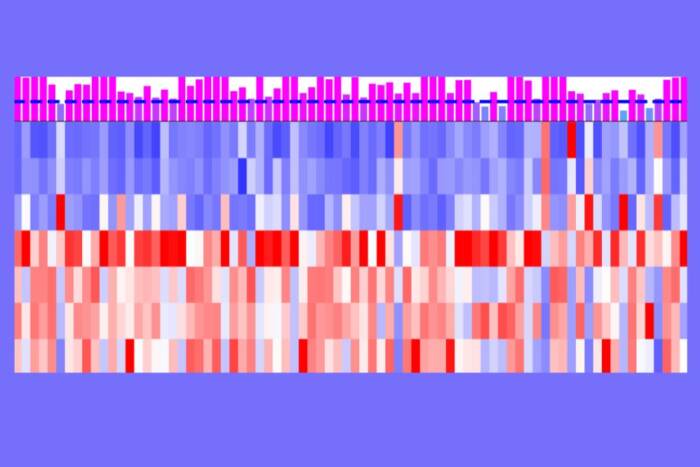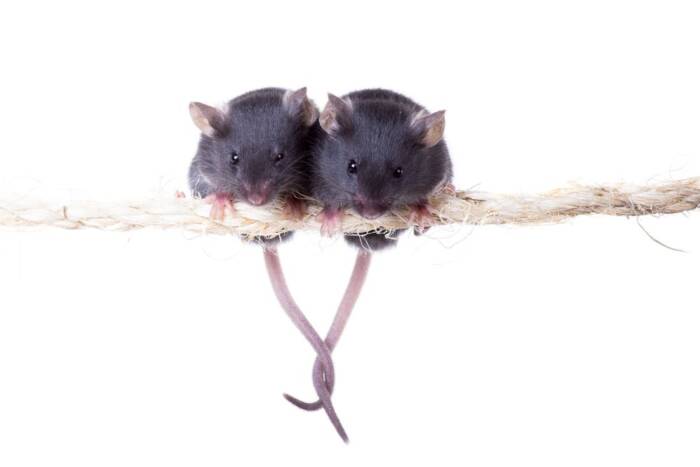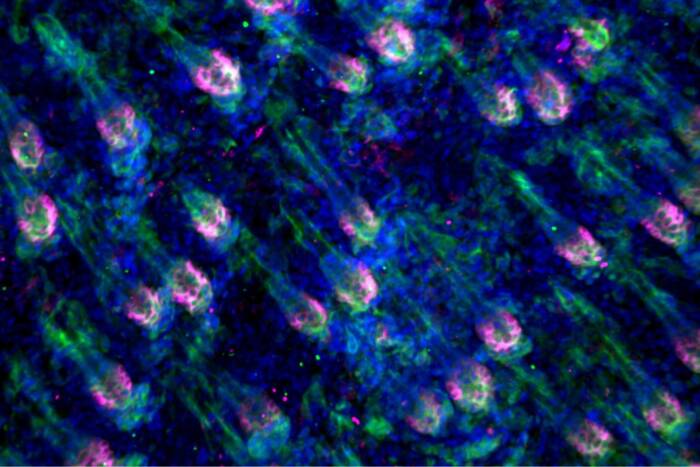Rockefeller University Luncheon Honors Science Outreach Program, Promotes Siemens Westinghouse Competition
The Rockefeller University and the Siemens Foundation will sponsor a luncheon on Wednesday, August 18, to honor Rockefeller’s Science Outreach Program for high school students and teachers and to promote the Siemens Westinghouse Science and Technology Competition. Sponsored by The Siemens Foundation, this newly founded national science competition aims to “recognize talent early on, fostering individual growth for those students willing to challenge themselves through the development of independent research projects.”
Each summer, about 60 high school juniors and seniors and 12 New York City schoolteachers gain laboratory experience and expand their scientific understanding. The students, who are mentored in the program by Rockefeller scientists, hail primarily from the New York City area and most matriculate to top universities. The teachers are encouraged to take their experiences back into their classrooms by writing an action proposal and by conducting workshops for their peers. It is estimated that 6,000 students are taught each year by present and former Outreach teachers.
One student in the midst of his second summer in the Science Outreach Program, Jonathan Zalben, who will go to Yale University in the fall, is working on a signaling pathway database that details interactions between cell compounds. Signaling pathways, Zalben explains, “are basically chains of reactions between proteins and other compounds, where one compound ‘signals’ another to do something such as change shape, turn on a gene or combine with other molecules.” The information programmed into the database is derived from pathway images that have been translated into a text encoded format, and scientists will be able to enter questions into the system and automatically receive information about the pathways they are studying.
Another student, Micaela Mendlow, who will go to Amherst College this fall, has begun work on synaptic plasticity in a part of the brain called the hippocampus. Scientists think that hippocampal synaptic plasticity is a good experimental model for learning and memory in mammals. “By achieving a deeper understanding of synaptic plasticity, we hope to clarify some of the mysteries of how the brain creates and stores long-term memory,” says Mendlow.
“Experiments such as these allow the students to pursue intense and potentially groundbreaking research in an area of their choice and to experience the nature of scientific endeavors,” says program director Bonnie Kaiser, Ph.D. “This exposure leaves a lasting impression on the participants and influences their future coursework.”
“Being here last summer motivated me to pursue science in college,” Zalben says. “It has definitely affected me.”
Rockefeller’s Science Outreach Program formally began in 1992 when Kaiser became its director, and it has since become widely recognized for its excellence and unbroken record of funding from the NIH. Over half of the Science Outreach students are female and one-quarter to one-third of the students are disadvantaged or underrepresented in science. In 1996-1997, four of the 10 finalists for the National Neuroscience Prize were participants in Rockefeller’s Science Outreach Program, and one of these finalists won the competition. Every year, about 10% of the students become INTEL semifinalists and some have gone on to become finalists and winners. In July, the program received a $350,000 grant from the Howard Hughes Medical Institute to continue to support its core program. More than 100 biomedical research institutions competed for the grants, which awarded $12.7 million to 35 institutions. “We are deeply honored that the NIH and the HHMI continue to recognize the long-term value of giving K-12 teachers and high school students these intense summer research experiences,” says Kaiser.
The Siemens Westinghouse Science and Technology Competition was officially launched in December 1998 with the goal of encouraging high school students to excel in hard science disciplines. Submissions of independent research projects will be accepted in September 1999 from individual students and from two-to-three member teams. These projects will be evaluated initially on a regional level with the national applicant pool divided into the following six geographic regions: New England, Middle States, South, Southwest, West and Midwest. Research universities in each of these regions will host competition activities and will judge both the regional and national competitions. Research universities participating in the 1999 competition will include Georgia Institute of Technology, Massachusetts Institute of Technology, University of Notre Dame, Carnegie Mellon University, University of California at Berkeley and University of Texas at Austin. The individual winners of the preliminary regional competition will receive $20,000 scholarships and each team will share $30,000 scholarships. The final individual winner of the national competition will be awarded a $100,000 national scholarship and the top team will divide $90,000 in scholarships among its members.
Although the Siemens Westinghouse Science and Technology Competition and the pre-existing Intel Science Talent Search are both designed to honor the scientific aptitude and achievement of talented high school students, fundamental differences exist between the two competitions. The Siemens Westinghouse Science and Technology Competition winners are announced in November so that the honor may be included on college applications. The Intel Science Talent Search winners are not announced until a final judging in March selects 10 scholarship recipients. Further, The College Board and Educational Testing Service will assist the Siemens Foundation in the development and administration of the competition.
Several representatives from Siemens including Albert Hoser, president of the Foundation, and John Tobin, vice president of the Foundation, are expected to attend the August 18 luncheon at Rockefeller University. They will speak with members of Rockefeller’s Science Outreach Program and will honor the university’s dedication to enhancing science education in New York City schools.


